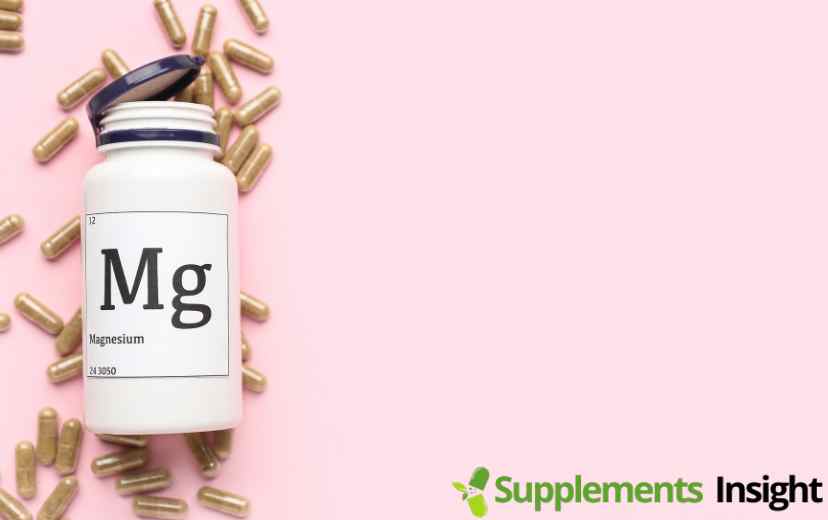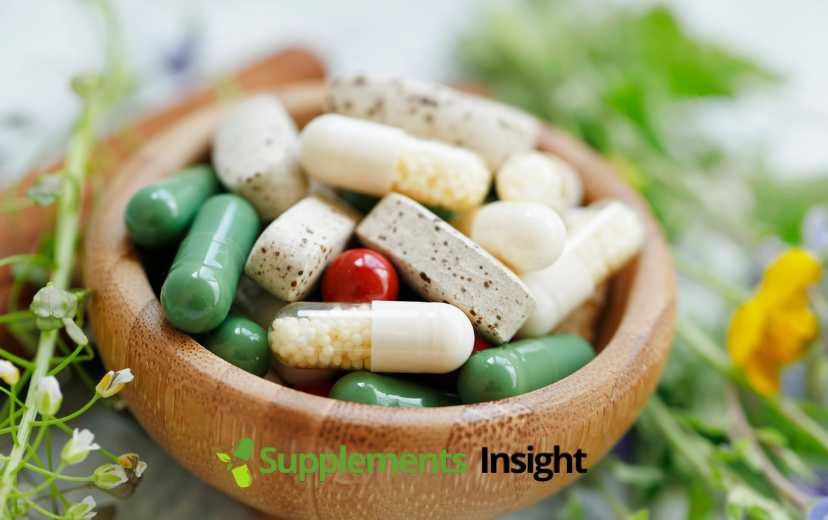Dubbed in some blogs as the “poor man’s Ozempic fiber supplement,” psyllium husk is being touted as another way to achieve some of the medication’s benefits without the prescription and cost.
As someone deeply invested in the pursuit of a healthier lifestyle, I’ve discovered the transformative power of this natural wonder. Join me on this journey as we explore what psyllium husk fiber is, its myriad benefits, and how you can seamlessly incorporate it into your daily routine.
What is Psyllium Husk Fiber?
Psyllium husk fiber, derived from the seeds of the Plantago ovata plant, is a soluble fiber that has gained recognition for its exceptional health benefits. Rich in soluble fiber, this supplement has become a staple for those looking to boost their overall well-being. Its origin can be traced back to the Mediterranean region, where it has been used for centuries for its medicinal properties.
Health Benefits of Psyllium Husk Fiber
Digestive Health Improvement
One of the standout features of psyllium husk fiber is its ability to promote digestive health. The soluble fiber content helps regulate bowel movements, alleviating issues such as constipation and promoting a healthy gastrointestinal tract.
Regulation of Blood Sugar Levels
For individuals concerned about blood sugar levels, psyllium husk fiber proves to be a valuable ally. Studies suggest that regular consumption can contribute to better glycemic control, making it a sensible choice for those with diabetes or at risk of developing the condition.
Lowering Cholesterol Levels
Elevated cholesterol levels are a significant health concern, but fear not – psyllium husk fiber can come to the rescue. Incorporating this fiber into your routine has been linked to a reduction in LDL (low-density lipoprotein) cholesterol, thus supporting cardiovascular health.
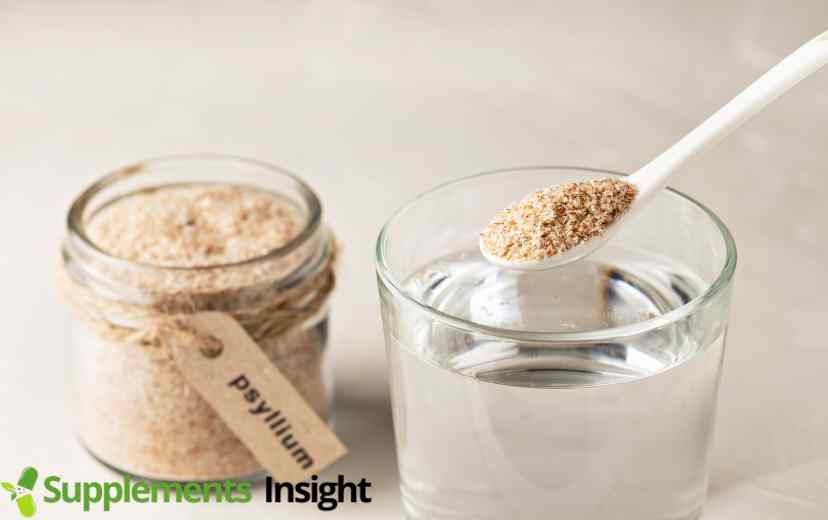
How to Incorporate Psyllium Husk Fiber into Your Diet
Supplements and Their Variations
Psyllium husk fiber is readily available in various forms, including capsules, powder, and chewable tablets. Choosing the right form depends on personal preferences and specific health goals.
Culinary Uses and Recipes
For the culinary enthusiasts among us, adding psyllium husk fiber to recipes is a delightful way to enhance nutritional value. From smoothies to baked goods, the possibilities are endless.
Choosing the Right Psyllium Husk Supplement
Choosing the right psyllium husk supplement is a crucial step to ensure you receive the maximum benefits without compromising your health. With a myriad of options available, it’s essential to consider several factors before making a decision. Let’s dive into the key aspects to guide you in selecting the perfect psyllium husk supplement for your needs.
Form of the Supplement
Consideration: Capsules, Powder, or Chewable Tablets
Insight: Psyllium husk supplements come in various forms, and the choice depends on personal preferences and convenience. If you prefer a quick and easy solution, capsules might be the way to go. Powder allows flexibility in dosage and can be easily mixed into drinks or recipes. Chewable tablets provide a more palatable option for those who dislike swallowing pills.
Purity and Quality
Consideration: Source and Processing
Insight: Opt for supplements derived from high-quality, organic psyllium husk. The processing methods play a crucial role in maintaining the purity of the supplement. Look for products that are minimally processed and free from additives, preservatives, and artificial colors.
Solubility
Consideration: How Well it Dissolves
Insight: The solubility of psyllium husk is essential for its effectiveness. A high-quality supplement should dissolve easily in water or other liquids without forming clumps. This ensures that you can consume it smoothly, making it more pleasant to incorporate into your routine.
Dosage Flexibility
Consideration: Varied Dosage Options
Insight: Choose a supplement that offers flexibility in dosage. This is particularly important if you’re new to psyllium husk or if you have specific health goals that may require adjusting your intake. Having the ability to control the dosage allows you to tailor the supplement to your individual needs.
Additional Ingredients
Consideration: Presence of Additives
Insight: Check the product label for any additional ingredients. While psyllium husk should be the primary ingredient, some supplements may include unnecessary additives. Opt for a supplement with minimal, natural additives, or none at all.
Brand Reputation and Reviews
Consideration: Customer Feedback and Brand Credibility
Insight: Research the brand reputation and read customer reviews. A reputable brand is more likely to provide a high-quality product. Reviews from other users can offer insights into the effectiveness and potential side effects of a specific supplement.
Price vs. Value
Consideration: Cost-Effectiveness
Insight: While price is a factor, consider the overall value of the supplement. Some higher-priced products may offer superior quality or additional features, making them a more cost-effective choice in the long run.
Choosing the right psyllium husk supplement involves a combination of personal preferences, health goals, and product quality. By considering these factors, you can make an informed decision that aligns with your unique needs and contributes to your overall well-being.
Poor Man’s Ozempic For Weight Loss
Are you on a journey towards shedding a few pounds? Psyllium husk fiber might just be the secret weapon you’ve been searching for. Its unique ability to expand when mixed with water creates a sense of fullness, aiding in appetite control. Incorporating this fiber into your routine could be the nudge your weight loss goals need.
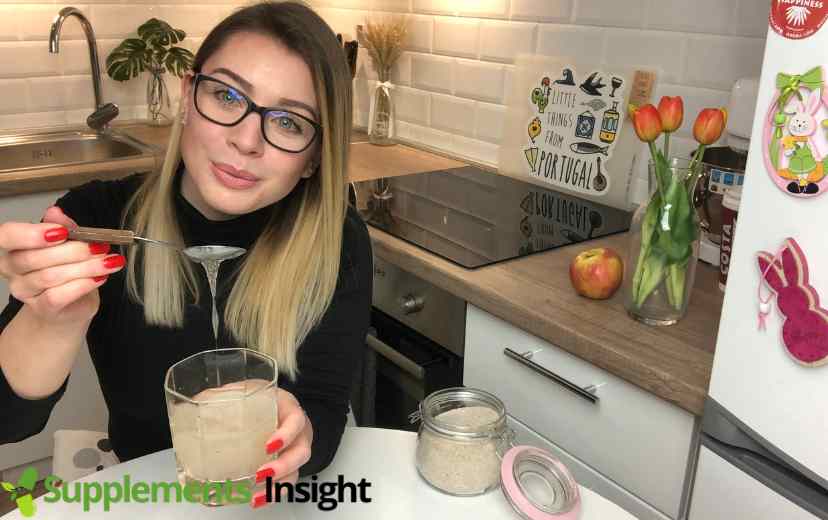
Precautions and Potential Side Effects
As with any supplement, it’s crucial to approach psyllium husk fiber with caution. Establishing proper dosage guidelines is essential to avoid potential side effects like bloating or gas. Additionally, individuals taking medications should consult with a healthcare professional to prevent any adverse interactions.
Psyllium Husk Fiber for Heart Health
A healthy heart is the cornerstone of overall well-being, and psyllium husk fiber plays a role in supporting cardiovascular health. By actively contributing to the reduction of LDL cholesterol levels, this supplement becomes a valuable addition to your heart-friendly lifestyle.
Addressing Common Myths and Misconceptions
Let’s debunk some myths! Psyllium husk fiber is often surrounded by misconceptions. From its taste to its perceived complexity, we’ll clarify these myths and provide accurate information to empower you in making informed decisions about your health.
Psyllium Husk Fiber and Gut Microbiota
The intricate world of gut microbiota is gaining recognition, and psyllium husk fiber plays a role in maintaining a healthy balance. Learn how this fiber interacts with your gut flora, fostering an environment that supports overall digestive wellness.
Incorporating Psyllium Husk Fiber into a Busy Lifestyle
We get it – life can get hectic. But fear not, as incorporating psyllium husk fiber into your routine doesn’t have to be a hassle. Discover quick and easy ways to ensure you never miss out on the health-boosting benefits, even on your busiest days.
Tips for Consistent Psyllium Husk Fiber Intake
Consistency is key, and establishing a routine is your ticket to success. Overcome taste or texture concerns with practical tips that make incorporating psyllium husk fiber into your daily life a breeze.
Comparing Psyllium Husk Fiber with Other Fiber Sources
Psyllium Husk Fiber vs. Oat Bran
Solubility:
Oat Bran: Soluble fiber that forms a gel when mixed with liquid.
Insight: Similar to psyllium husk in terms of forming a gel-like substance, contributing to digestive health.
Cholesterol Management:
Oat Bran: Contains beta-glucans that may help reduce LDL cholesterol.
Insight: Like psyllium husk, oat bran supports heart health through cholesterol regulation.
Nutritional Content:
Oat Bran: Rich in nutrients like B vitamins, iron, and magnesium.
Insight: While both provide essential nutrients, the specific nutritional profile differs.
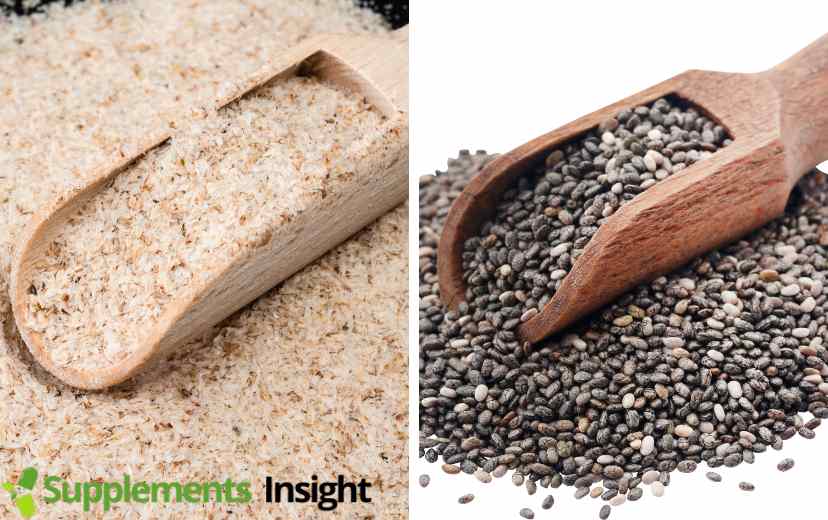
Psyllium Husk Fiber vs. Chia Seeds
Solubility:
Chia Seeds: Expand in liquid, forming a gel-like consistency.
Insight: Offers a different texture compared to psyllium husk but still contributes to satiety.
Omega-3 Fatty Acids:
Chia Seeds: A rich source of omega-3 fatty acids.
Insight: Provides additional cardiovascular benefits beyond fiber content.
Antioxidant Properties:
Chia Seeds: Contain antioxidants, contributing to overall health.
Insight: Psyllium husk focuses more on digestive health, while chia seeds offer broader antioxidant benefits.
Psyllium Husk Fiber vs. Flaxseeds
Solubility:
Flaxseeds: Soluble fiber content contributes to a gel-like consistency.
Insight: Similar to psyllium husk in terms of forming a gel, supporting digestive health.
Omega-3 Fatty Acids:
Flaxseeds: A rich source of alpha-linolenic acid (ALA), a type of omega-3 fatty acid.
Insight: Like chia seeds, flaxseeds offer additional cardiovascular benefits.
Lignans:
Flaxseeds: Contain lignans, compounds with antioxidant properties.
Insight: Provides antioxidant benefits beyond the fiber content, supporting overall health.
Psyllium Husk Fiber vs. Metamucil
Active Ingredient:
Metamucil: Often contains psyllium husk as the main active ingredient.
Insight: Psyllium husk itself is a versatile fiber source, and choosing it directly ensures a pure and unadulterated intake.
Additional Ingredients:
Metamucil: May include flavorings, colors, and sweeteners.
Insight: While these additives may enhance taste, opting for plain psyllium husk allows more control over what you’re putting into your body.
Customization:
Metamucil: Limited in terms of customization due to pre-added ingredients.
Insight: Choosing pure psyllium husk grants the flexibility to tailor your fiber intake according to your specific health goals.
| You Can Learn More About Supplements and Vitamins in our Ultimate Guide Here. |
Psyllium Husk Fiber vs. Wheat Bran
Solubility:
Wheat Bran: Insoluble fiber that adds bulk to the stool.
Insight: Psyllium husk’s solubility allows for a smoother consistency, making it a more palatable choice for those who prefer a less grainy texture.
Gluten Content:
Psyllium Husk: Naturally gluten-free.
Insight: A suitable alternative for individuals with gluten sensitivities, providing a safe option for those with dietary restrictions.
Nutrient Density:
Wheat Bran: Contains minerals like iron, magnesium, and zinc.
Insight: While both offer nutritional benefits, psyllium husk provides a concentrated dose of fiber without the additional calories found in wheat bran.
In the realm of dietary fiber, psyllium husk stands out for its unique combination of solubility, cholesterol-regulating properties, and versatility. While other fiber sources offer valuable nutritional benefits, the distinctive features of psyllium husk make it a compelling choice for those seeking digestive health support, weight management, and cardiovascular wellness. Remember, a balanced diet may include a variety of fiber sources to harness the diverse benefits each has to offer.
Practical Advice
Personalization Matters:
Insight: Consider your individual preferences and health goals. If customization is crucial, opt for plain psyllium husk to have more control over your fiber intake.
Consider Lifestyle:
Insight: Psyllium husk’s versatility in various forms makes it adaptable to different lifestyles. Choose a form that seamlessly fits into your routine, whether it’s capsules for convenience or powder for culinary creativity.
Read Labels:
Insight: Always read product labels carefully. Choosing a psyllium husk supplement with minimal additives ensures a purer and more natural fiber intake.
Hydration is Key:
Insight: Psyllium husk absorbs water, so staying adequately hydrated is essential. Ensure you drink plenty of water throughout the day to maximize its effectiveness and prevent potential constipation.
Gradual Incorporation:
Insight: If you’re new to psyllium husk, start with a lower dosage and gradually increase it. This helps your digestive system adjust, reducing the likelihood of discomfort.
Consult with a Professional:
Insight: Before making significant changes to your diet, especially if you have pre-existing health conditions or take medications, consult with a healthcare professional for personalized advice.
In the dynamic world of dietary fiber, psyllium husk fiber shines for its unique qualities, making it a versatile and effective choice. By understanding its distinctive features and considering individual preferences, you can make informed choices that align with your health and wellness journey.
Conclusion
In closing, the journey into the realm of psyllium husk fiber is a rewarding one. From its origins to the diverse health benefits, this supplement proves itself as a versatile and potent addition to your wellness routine. As you embark on this adventure, may the positive changes in your health be as transformative as they have been for many others.
FAQs about Psyllium Husk Fiber
Can I take psyllium husk fiber every day?
Yes, regular intake is generally safe and can provide long-term health benefits. However, consult with your healthcare professional for personalized advice.
Are there any side effects associated with psyllium husk fiber?
Some individuals may experience bloating or gas initially. Starting with a low dose and gradually increasing it can help minimize these effects.
Can I mix psyllium husk fiber with any drink?
Yes, it can be mixed with water, juice, or added to smoothies. Ensure you consume it promptly to avoid the mixture becoming too thick.
How long does it take to see the benefits of psyllium husk fiber?
Results may vary, but some people notice positive changes in digestive health within a few weeks of consistent use.
Is psyllium husk fiber suitable for children?
Consult with a pediatrician before giving psyllium husk fiber to children to ensure it is safe and appropriate for their age.
Embark on your psyllium husk fiber journey today and witness the positive impact on your health. Here’s to a happier and healthier you!
References / Supporting Research
Alberts DS, Martínez ME, Roe DJ, et al. Lack of effect of a high-fiber cereal supplement on the recurrence of colorectal adenomas. N Eng J Med. 2000;342(16):1156-62.
Anderson JW, Allgood LD, Lawrence A, et al. Cholesterol-lowering effects of psyllium intake adjunctive to diet therapy in men and women with hypercholesterolemia: meta-analysis of 8 controlled trials. Am J Clin Nutr. 2000;71:472-9.
Bliss DZ, Savik K, Jung HJ, Whitebird R, Lowry A, Sheng X. Dietary fiber supplementation for fecal incontinence: a randomized clinical trial. Res Nurs Health. 2014;37(5):367-78.
Blumenthal M, Goldberg A, Brinckmann J. Herbal Medicine: Expanded Commission E Monographs. Newton, MA: Integrative Medicine Communications; 2000:314-21.
Burke V, Hodgson JM, Beilin LJ, Giangiulioi N, Rogers P, Puddey IB. Dietary protein and soluble fiber reduce ambulatory blood pressure in treated hypertensives. Hypertension. 2001;38(4):821-826.
Chan MY, Heng CK. Sequential effects of a high-fiber diet with psyllium husks on the expression levels of hepatic genes and plasma lipids. Nutrition. 2008;24(1):57-66.
Uehleke B, Ortiz M, Stange R. Cholesterol reduction using psyllium husks – do gastrointestinal adverse effects limit compliance? Results of a specific observational study. Phytomedicine. 2008;15(3):153-9.
Wei ZH, Wang H, Chen XY, Wang BS, Rong ZX, Wang BS, Su BH, Chen HZ. Time and dose dependent effect of psyllium on serum lipids in mild to moderate hypercholesterolemia: a meta analysis of controlled clinical trials. Eur J Clin Nutr. 2009;63(7):821-7.
Wick J. Diverticular disease: eat your fiber. Consult Pharm. 2012;27(9):613-8.
Ziai SA, Larijani B, Akhoondzadeh S, Fakhrzadeh H, Dastpak A, Bandarian F, et al. Psyllium decreased serum glucose and glycosylated hemoglobin significantly in diabetic outpatients. J Ethnopharmacol. 2005 Nov 14;102(2):202-7.
- Emma Digestive Supplement Reviews - November 23, 2023
- Guide To Collagen Supplements - November 23, 2023
- Guide To Protein Supplements - November 23, 2023

